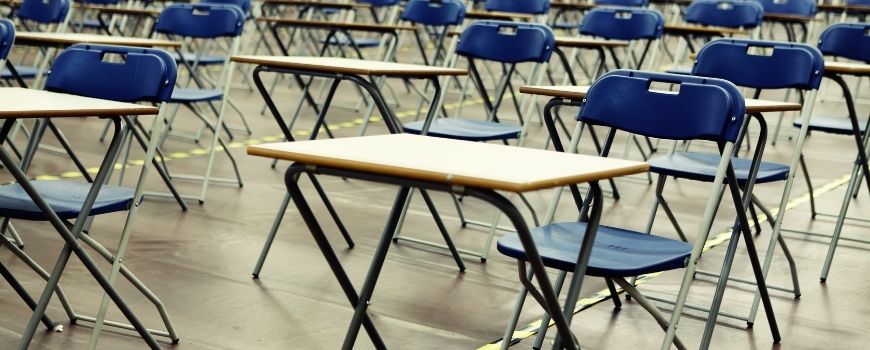Welcome to Matrix Education
To ensure we are showing you the most relevant content, please select your location below.
Select a year to see courses
Learn online or on-campus during the term or school holidays
Learn online or on-campus during the term or school holidays
Learn online or on-campus during the term or school holidays
Learn online or on-campus during the term or school holidays
Learn online or on-campus during the term or school holidays
Learn online or on-campus during the term or school holidays
Learn online or on-campus during the term or school holidays
Get HSC Trial exam ready in just a week
Get HSC exam ready in just a week
Select a year to see available courses
Science guides to help you get ahead
Science guides to help you get ahead
In this article, we look at life at James Ruse Agricultural High School. We give an overview of assessment schedules, co-curricular activities and some student experiences.

Join 75,893 students who already have a head start.
"*" indicates required fields
You might also like

Join 8000+ students each term who already have a head start on their school academic journey.
Curious about what student life at James Ruse entails? In this article, we discuss the extra-curricular activities on offer at James Ruse Agricultural High School, the assessment periods and what you can expect in a typical day.
Student life changes from school to school. To help you get a sense of what student life is like at Ruse and inform your decision making we’ve put this guide together. In it, we discuss:
At James Ruse, classes usually start off at 8:50 am and finish off at 3:05 pm unless you are one of the lucky ones with morning and afternoon classes, or study periods (time slots when you don’t have an allocated class — if you are at school during then, you are supposed to spend these in the school library).
During lunch and recess, you’ll find students dispersed all over the school; some opting to play sports on the field, courts or gym, while others chatter away with their friends or try to be productive in the library. There’s always clubs and activities going on around the school (see below!), so don’t be afraid to join if you are feeling restless — sign ups are usually open all year round!
When the school day finishes, junior students can expect to spend about an hour or two every day on school work and assignments, but this can vary throughout the year. The emphasis on junior school is about developing good study habits and figuring out what works best for you. There shouldn’t be any need to stay up working!
For seniors though, there’s always work to do and it’s about finding a balance between quantity and quality of work. Staying up until 2 am every day won’t help if you are mostly procrastinating and going to crash the next day! Typically senior students will find themselves setting aside around 4 hours every night to study in the lead up to assessment periods.
| Year | Half-yearlies | Yearlies |
| 7 | – | Term 4, Week 5 |
| 8 | Term 2, Week 4 | Term 4, Week 4 |
| 9 | Term 2, Week 5 | Term 4, Week 5 |
| 10 | Term 2, Week 4 | Term 4, Week 4 |
In Year 7, students only have one block assessment period which is for the yearly exams. There are generally conducted during Term 4, Week 5.
Since all assessment periods in James Ruse Agricultural High School are compacted into one week, students will often be completing multiple exams in one day. This requires the student to have a strong knowledge of all their subjects, as it is impractical to cram studying in before most exams.
Many students find that there is limited time in Term 4 to revise before their yearly exams, so we recommend that students utilise the October holidays to fill in the gaps in their study notes with our free Year 7 English and Maths guide. Remember to target the syllabus in your notes: your school teachers will provide them for each subject. You can only be assessed on content mentioned in the syllabus dot points!
Whether this is your first time writing study notes, or you just want to make your notes more effective, check out this Ultimate Guide to Writing Perfect Study Notes.
Student can also clarify the concepts that they are unsure about with the comprehensive and compact Year 7 English and Maths Matrix Holiday Courses held over two days in October.
Matrix term courses are accelerated by one term, so that students can feel confident in their understanding of the content, and fully utilise school lessons to revise, apply and develop nuances in their knowledge.
Other timed examination tasks are spaced out during the term. These exams may include Mathematics Topic Tests, Science practical exams and English writing tasks.
While these exams hold lesser weighting in the student’s final report, it is important to prepare for these exams and keep up to date with the lessons at school, which can pile up and move quickly in a class full of gifted peers. In addition, the first Maths Topic Test may be used to determine which students are allowed to join the school’s Maths Enrichment class for year 7 (note: for year 8 – 10, the Maths Enrichment class is open to the top 30 students).

Unlike in year 7, students in year 8 will be tested on their knowledge in the mid-year. These half-yearly exams can make up to 75% of their semester 1 report mark, and up to 50% of their semester 2 report mark.
While student rankings for each subject are not recorded on the report until year 11 and 12, they are often used to determine which students gain entry to enrichment programs, school competition teams and other opportunities.
In Year 8, students have two block assessment periods known as the half-yearly exams and the yearly exams. Year 8 half-yearly exams are usually conducted in Term 2, Week 4 and yearly exams are conducted Term 4, Week 4.
The April and October Matrix Year 9 English and Maths Holiday Courses are held in the holidays before each of those exam periods. Structured over two days, they allow students to efficiently use their holidays to keep up with the demands of school, and revise for their exams.
These free Year 8 English and Maths guides explain and summarise the basics you need to know for Year 8.
It is also essential that students work consistently during the term to ensure a strong understanding of their subjects and establish healthy study habits necessary for senior years. The focus of junior school is learning and preparing for senior school, so strong fundamentals for subjects such as Maths and English are especially important.
The expectation for year 9 students is definitely higher, with some students even beginning to undertake Preliminary courses with the school’s accelerated program. You can find the full list of accelerated subjects above.
Moreover, each student’s Year 9 maths ranking will be used to allocate them in a Maths class for Year 10. Each Maths class consists of 24 students and are referred to by the letters J, R, U, S and E (these letters spell out “J RUSE” with class J as the top class consisting of the highest ranked 30 students).
Year 9 students typically have their half-yearlies in Term 2, Week 5 and yearlies in Term 4, Week 5.
Matrix Year 9 English and Maths Holiday Courses are available in the April and October holidays before each assessment block, so students can structure their holiday revision and clarify difficult concepts.
Skills like essay writing and algebraic techniques form the basis of senior English and Maths, so we strongly recommend students address any challenges they are facing as soon as possible. These free Year 9 English and Maths guides are useful starting points, and Matrix students can book a workshop or contact their teachers for any of their concerns.

At this point, student Maths classes are streamed according to rank, and most students will have developed a working study routine. Not quite there yet? There’s still time; here’s a step-by-step guide on how to create a weekly study rhythm.
Year 10 is a decisive year because this is when students select the subjects which they will ultimately undertake for their HSC. The Year 10 assessment periods are generally during Term 2, Week 4 and Term 4, Week 4 (same as Year 8).
Students may find it useful to attend our Year 10 English and Maths Holiday Courses in April and October to add structure and clarity to their learning in the lead up to their exams.
We also have term courses, available for Year 10 Maths, Science and English, accelerated one term ahead of school to support the learning demands of a fast-paced selective school such as James Ruse AHS
Since Matrix courses are one term ahead of school, keep in mind that the Year 11 Science courses (for Chemistry, Biology and Physics) will begin in Year 10, Term 4. Science content is taught rather quickly in James Ruse AHS lessons, so to avoid falling behind, we recommend James Ruse students utilise our accelerated holiday courses or Matrix+ to study ahead at your own pace.

Content is taught at a fast pace in James Ruse AHS lessons, so to be fully up to date with the content assessed for each exam period, we suggest James Ruse students utilise our accelerated holiday courses or Matrix+ to study ahead or at your own pace.
The Year 11 course at James Ruse AHS runs over three terms.
| Term | Assessment block |
| 1 | None: assessment dates vary by subject |
| 2 | Week 2 |
| 3 | Week 7 – 8 |
At James Ruse AHS, the HSC English Advanced course is taught in the order of Common Module, Module A, Module C, and Module B.
The Matrix English Advanced Term Course aligns with this structure for the first two terms, and James Ruse students can use Matrix+ to access Module C and Module B resources in terms 3 and 4. If you are a Matrix student, please feel free to book a workshop or reach out to your Matrix teachers for any additional feedback.
| Term | Assessment blocks |
| 1 | Week 7 |
| 2 | Week 7 – 8 |
| 3 | Week 7 |
| 4 | Trial Exams: Week 3 – 4 |
Schools are about more than just academic results. School is an opportunity for you to develop and cultivate interests outside of or complementary to academic work. In this regard, Ruse has plenty to offer students.
The school facilitates a large range of extracurricular activities from cadets to history debating, and you can always pitch a new club if your interests aren’t covered.
| Field | Offerings |
| Academic |
|
| Sport |
|
| Leadership and Service |
|
| Creative Arts |
|
| Clubs |
|
| Public Speaking |
|
Written by Matrix Education
Matrix is Sydney's No.1 High School Tuition provider. Come read our blog regularly for study hacks, subject breakdowns, and all the other academic insights you need.© Matrix Education and www.matrix.edu.au, 2025. Unauthorised use and/or duplication of this material without express and written permission from this site’s author and/or owner is strictly prohibited. Excerpts and links may be used, provided that full and clear credit is given to Matrix Education and www.matrix.edu.au with appropriate and specific direction to the original content.